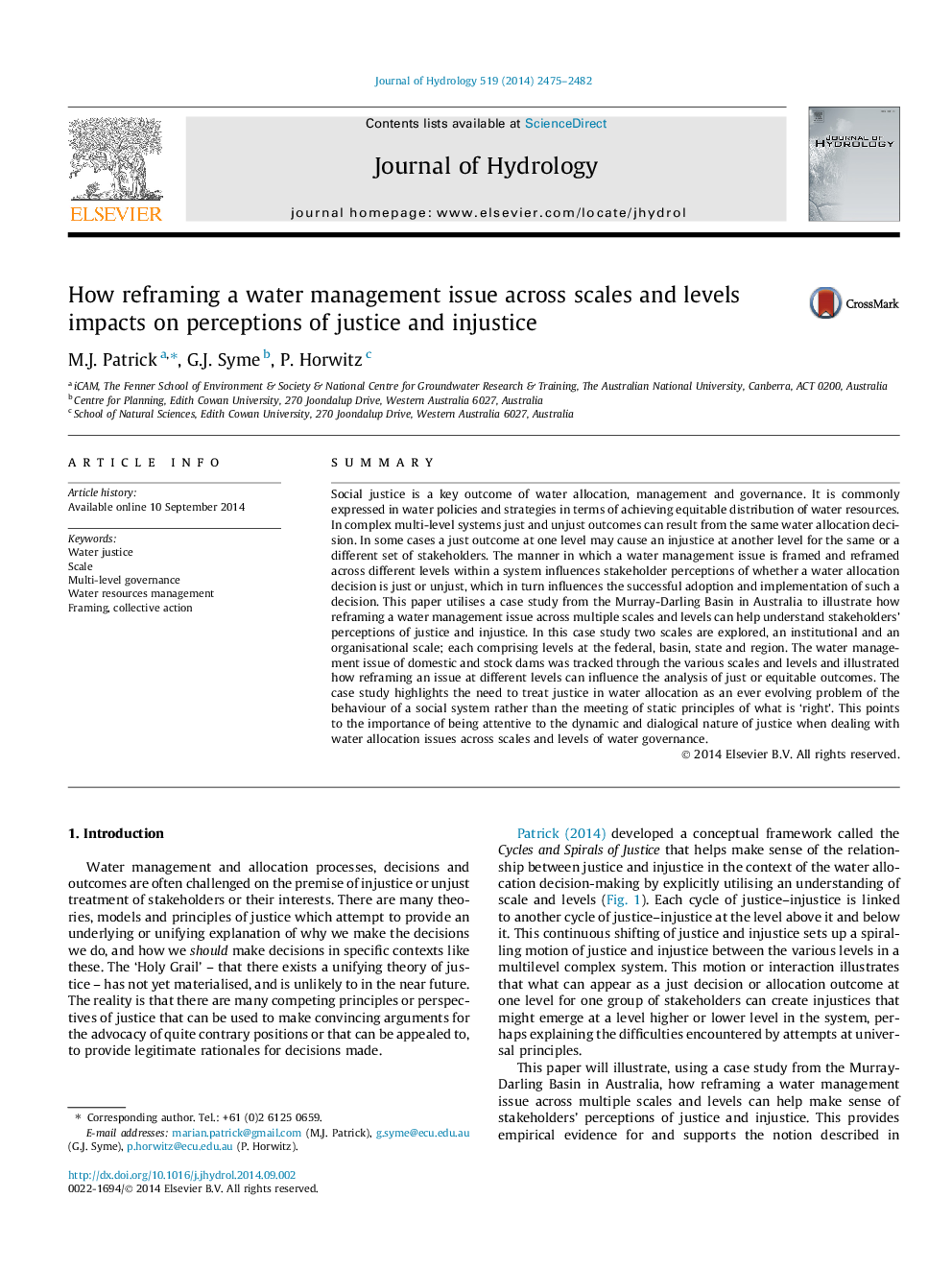| کد مقاله | کد نشریه | سال انتشار | مقاله انگلیسی | نسخه تمام متن |
|---|---|---|---|---|
| 6412617 | 1332901 | 2014 | 8 صفحه PDF | دانلود رایگان |
- Actors can reframe issues between levels and scales to support their own interests.
- Reframing an issue changes perceptions of justice and injustice.
- Justice is dynamic and constantly evolving.
SummarySocial justice is a key outcome of water allocation, management and governance. It is commonly expressed in water policies and strategies in terms of achieving equitable distribution of water resources. In complex multi-level systems just and unjust outcomes can result from the same water allocation decision. In some cases a just outcome at one level may cause an injustice at another level for the same or a different set of stakeholders. The manner in which a water management issue is framed and reframed across different levels within a system influences stakeholder perceptions of whether a water allocation decision is just or unjust, which in turn influences the successful adoption and implementation of such a decision. This paper utilises a case study from the Murray-Darling Basin in Australia to illustrate how reframing a water management issue across multiple scales and levels can help understand stakeholders' perceptions of justice and injustice. In this case study two scales are explored, an institutional and an organisational scale; each comprising levels at the federal, basin, state and region. The water management issue of domestic and stock dams was tracked through the various scales and levels and illustrated how reframing an issue at different levels can influence the analysis of just or equitable outcomes. The case study highlights the need to treat justice in water allocation as an ever evolving problem of the behaviour of a social system rather than the meeting of static principles of what is 'right'. This points to the importance of being attentive to the dynamic and dialogical nature of justice when dealing with water allocation issues across scales and levels of water governance.
Journal: Journal of Hydrology - Volume 519, Part C, 27 November 2014, Pages 2475-2482
